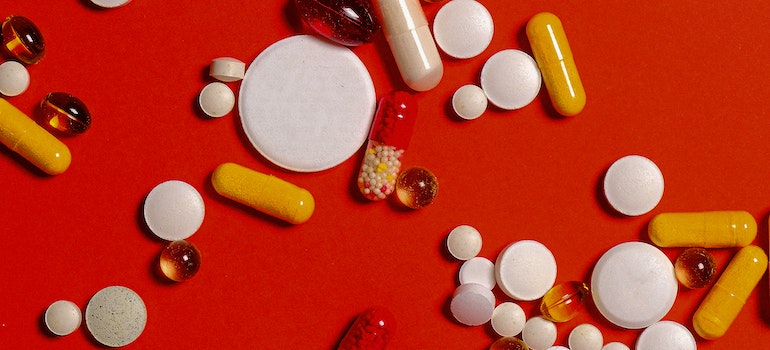Drug decriminalization, a policy approach aimed at reducing the punitive consequences of drug possession, has received considerable attention as a potential solution to the complex issues surrounding drug use and addiction. Harmony Ridge Recovery Center will explore the benefits of decriminalizing drug use and possession and how it can contribute to the way we perceive addiction. The change in our perception of drug problems can encourage people who struggle with an addiction to seek help and join rehabs in WV, which leads to a healthier society. On the other hand, we will take a look at the disadvantages of decriminalization, such as the potential increase in drug use, challenges in regulating drug markets, and the persistence of societal stigma toward drug users.
What Is Drug Decriminalization?
Decriminalization removes criminal penalties for possessing small amounts of drugs for personal use. Instead of facing arrests and convictions, people may receive civil fines or mandatory treatment. It is a harm reduction strategy that aims to shift the focus from punishment to public health, treating drug abuse as a disease of addiction and a health issue rather than solely a criminal offense. However, decriminalization does not permit drug production, distribution, or commercial sale.
On the other hand, legalization encompasses a comprehensive regulatory framework that allows for the legal production, distribution, sale, and consumption of specific drugs. This approach is more permissive and aligns with the regulation of alcohol use and tobacco. Legalization can lead to a broader cultural acceptance of drug consumption, but strict rules and regulations are required to manage the industry and protect public health.
Benefits of Decriminalizing Drug Use and Possession
- Reduced incarceration rates for non-violent drug offenders
- Shift towards a public health approach
- Reallocation of resources from law enforcement to prevention and treatment efforts

Reduced Incarceration Rates
One of the most significant advantages of decriminalizing drug use and possession is its potential to alleviate the burden on the criminal justice system and decrease incarceration rates, especially for non-violent drug offenders. In many jurisdictions, a large portion of the prison population comprises people convicted of drug-related offenses. By shifting the focus away from punitive measures, such as imprisonment, and toward rehabilitation, society can avoid overcrowded prisons and the long-lasting negative impacts of incarceration on individuals and their families. Instead of being trapped in a cycle of criminality, those struggling with drug use can be directed towards appropriate treatment options that address the root causes of addiction.
Focus on Public Health
Decriminalization places drug use within public health rather than criminal justice. Treating drug use as a medical and social issue allows for a more compassionate and empathetic approach to people grappling with addiction. By reducing the fear of legal repercussions, more people who struggle with drug addiction may be encouraged to seek professional help. They will feel motivated to enroll in the best drug rehab WV offers without the fear of prosecution.
This shift in perspective also fosters increased access to healthcare services, addiction treatment programs, and harm reduction initiatives. Harm reduction strategies, such as needle exchange programs and supervised injection sites, can help mitigate the spread of blood-borne diseases and prevent overdose deaths, ultimately promoting better public health outcomes.
Allocation of Resources
Another notable advantage of decriminalizing drug use and possession is reallocating resources from law enforcement and incarceration toward prevention and treatment efforts. The vast financial resources required to investigate, prosecute, and incarcerate drug offenders can be better invested in education, prevention, and rehabilitation programs.
Schools can implement evidence-based drug education programs that focus on prevention or early intervention for students who develop an addiction to substances such as marijuana. They can equip young people with the necessary knowledge and skills to make informed decisions. Additionally, increased funding for addiction treatment centers and support services can create a more comprehensive and accessible network of care for those seeking assistance at the most reputable marijuana rehab center WV has to offer. By addressing the root causes of addiction and providing adequate support, society can better tackle the challenges associated with marijuana and substance use.
Drawbacks of Drug Decriminalization
Along with the benefits of drug decriminalization, we need to address the drawbacks as well:
- Potential increase in drug use
- The challenge of regulation and control
- Stigma and perception

Potential Increase in Drug Use
One of the main concerns surrounding drug decriminalization is the potential for an uptick in drug use due to the perception of leniency toward drug possession. Critics argue that the absence of criminal penalties may convey a message of reduced risk associated with drug use, leading to more experimentation and consumption, particularly among the youth. However, research on the relationship between decriminalization and drug consumption yields conflicting results. While some studies suggest a rise in drug use following decriminalization, others indicate no significant impact or decrease in usage rates. The complexities of various societal factors and drug policies across different regions make it challenging to draw definitive conclusions on this matter.
The Challenge of Regulation after Decriminalizing Drug Use and Possession
Decriminalization presents a regulatory dilemma, as it does not involve establishing a legal drug market. As a result, controlling drug quality, potency, and distribution becomes a difficult task. In the absence of a well-regulated market, dangerous substances such as fentanyl may circulate, which will put users’ health and safety at risk. This powerful opioid can cause long-term health problems and even heart failure. To prevent the fatal consequences of fentanyl use, it is highly advisable to get professional assistance at the most reputable fentanyl detox center WV can offer you.
Even after decriminalizing drug use and possession, the illegal drug market may persist. However, it will exist in a different form, as the decriminalization of drug possession does not address the production and distribution aspects. This may perpetuate associated criminal activities, such as drug trafficking and organized crime, even in a decriminalized context.
Stigma and Perception
Despite the intentions of drug decriminalization to treat drug use as a public health issue, societal stigma toward drug users may persist. People struggling with addiction may still face discrimination and prejudice, even when drug possession is no longer a criminal offense. Societal stigma is very strong, and it is one of the main reasons people who struggle with insomnia and use sedatives such as Ambien may not even realize they have an addiction until it is too late. This hinders their willingness to seek help and support from professionals and, ideally, enroll in the most effective Ambien rehab WV has. Such misunderstandings or misrepresentations of the policies could lead to resistance and pushback, hindering the potential benefits of a more compassionate approach to drug-related challenges.

Examining Results in Different Countries
Several countries have taken the bold step of legalizing certain drugs, marking a significant departure from traditional prohibitionist approaches. For instance, Portugal decriminalized the possession and use of all drugs in 2001, shifting the focus from criminal punishment to healthcare and rehabilitation. This move has led to a decline in drug-related deaths and infections while also promoting a more open dialogue about addiction and mental health.
Uruguay became the first country to fully legalize cannabis in 2013, resulting in reduced crime rates and regulated access for users. Similarly, Canada legalized recreational cannabis in 2018, with initial data suggesting a decrease in cannabis-related arrests and a boost in tax revenue.
The Netherlands stands as a pioneering example in the realm of drug policy, known for its pragmatic and tolerant approach. While not fully legalizing all drugs, the country has implemented a policy of “de facto decriminalization” for small quantities of cannabis for personal use. This approach has allowed for the establishment of regulated “coffee shops” where adults can purchase and consume cannabis. The Dutch drug policy emphasizes harm reduction, public health, and separating the cannabis market from harder drugs. This unique strategy has led to lower rates of cannabis-related arrests and a focus on diverting law enforcement resources toward more serious crimes. While the Netherlands’ approach has received praise for minimizing the negative consequences of drug use, it also raises questions about the potential implications for law enforcement, public safety, and international drug control agreements.
These examples highlight the potential benefits of a regulated approach to drug policy, which can include harm reduction, improved public health outcomes, and the redirection of resources toward prevention and treatment programs. However, the results vary by country and substance, underlining the complex nature of drug policy and the need for ongoing evaluation and adaptation.
Take a Step to a Brighter Future with Harmony Ridge Recovery
As we navigate the complexities of drug decriminalization, it is important to remain mindful of the close association between drug use and health problems. Substance abuse and addiction can have far-reaching consequences not only for individuals but also for families, communities, and society as a whole. In our pursuit of finding solutions, it is essential to work together to strike a balance that serves the best interests of everyone involved. Ultimately, our collective goal should be to build a healthier society where people are not stigmatized for seeking help and where addiction is regarded as a treatable medical condition rather than a moral failing. By staying aware of the difficulties surrounding the topic of decriminalizing drug use and possession, we can forge a path toward a more compassionate and understanding society, supporting those in need and fostering a brighter future for us all.



